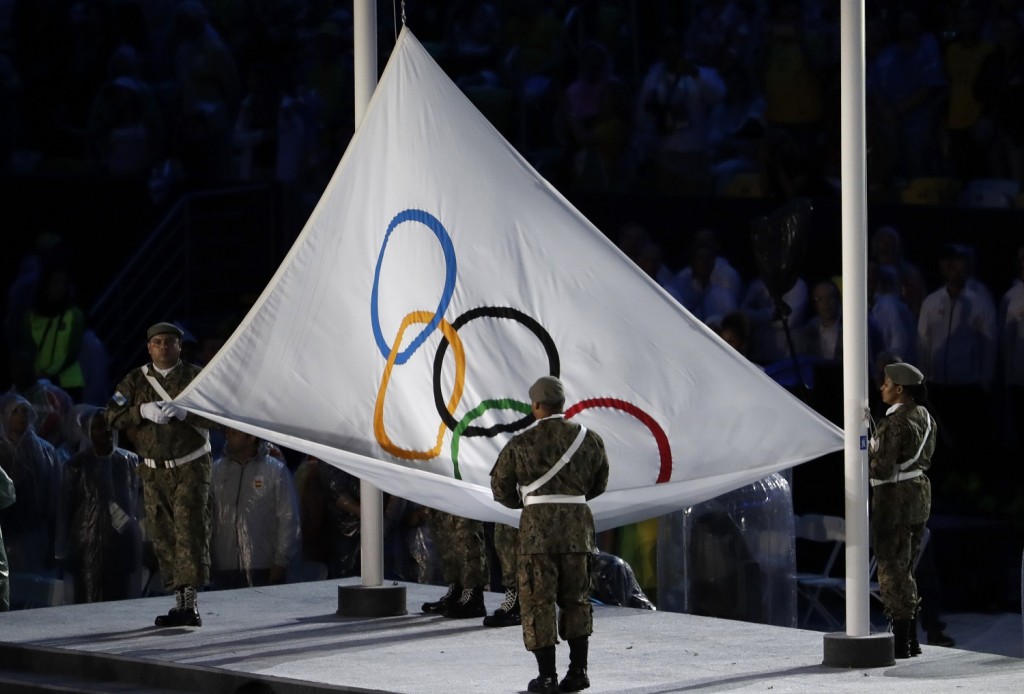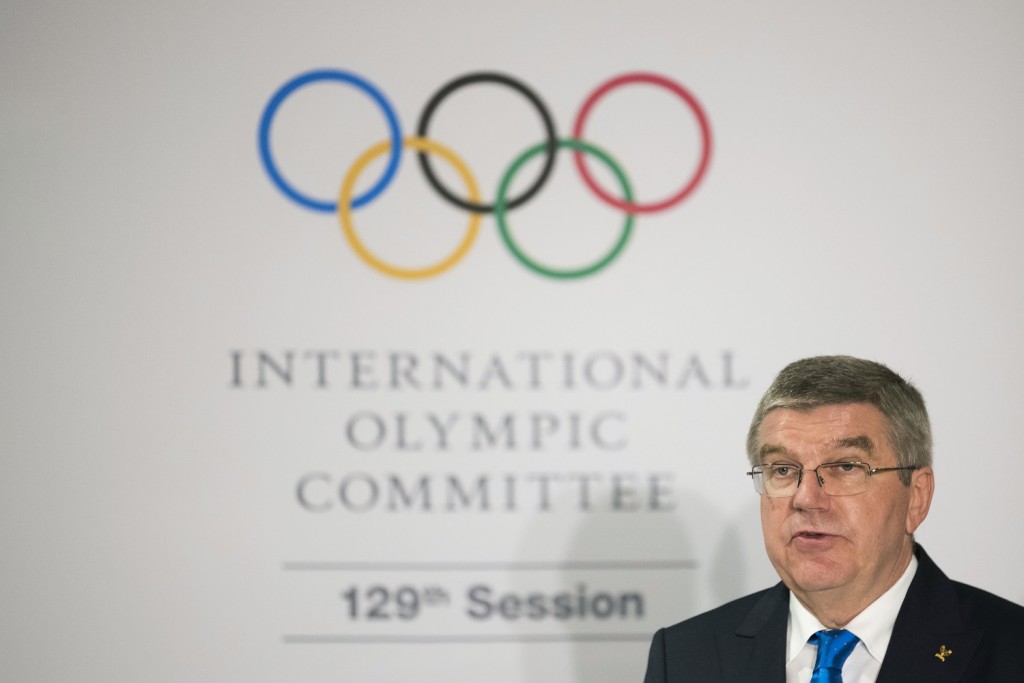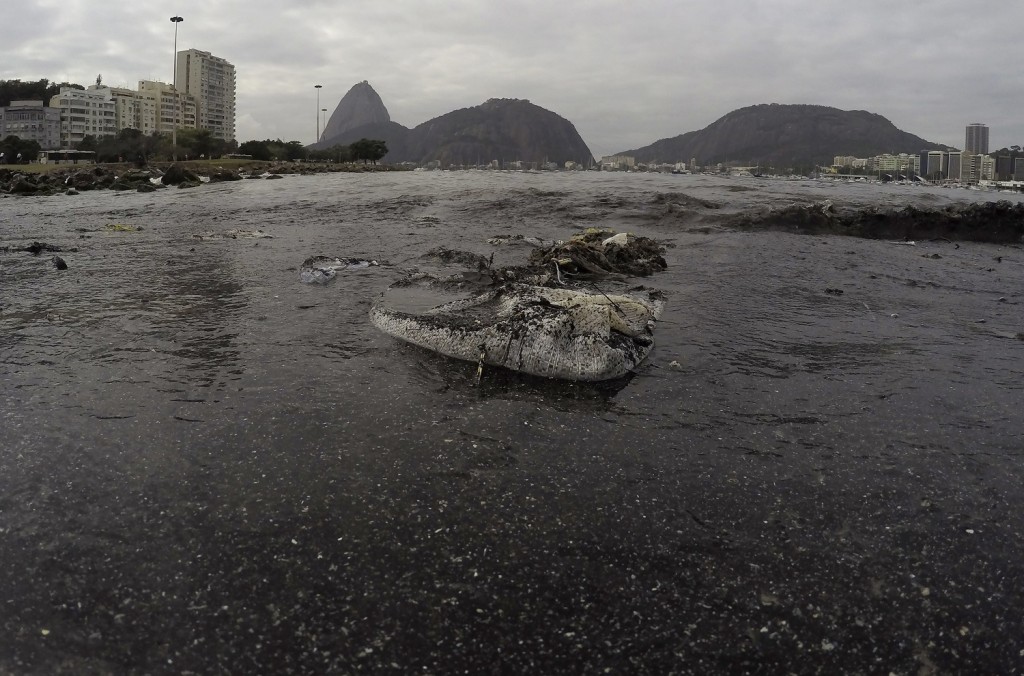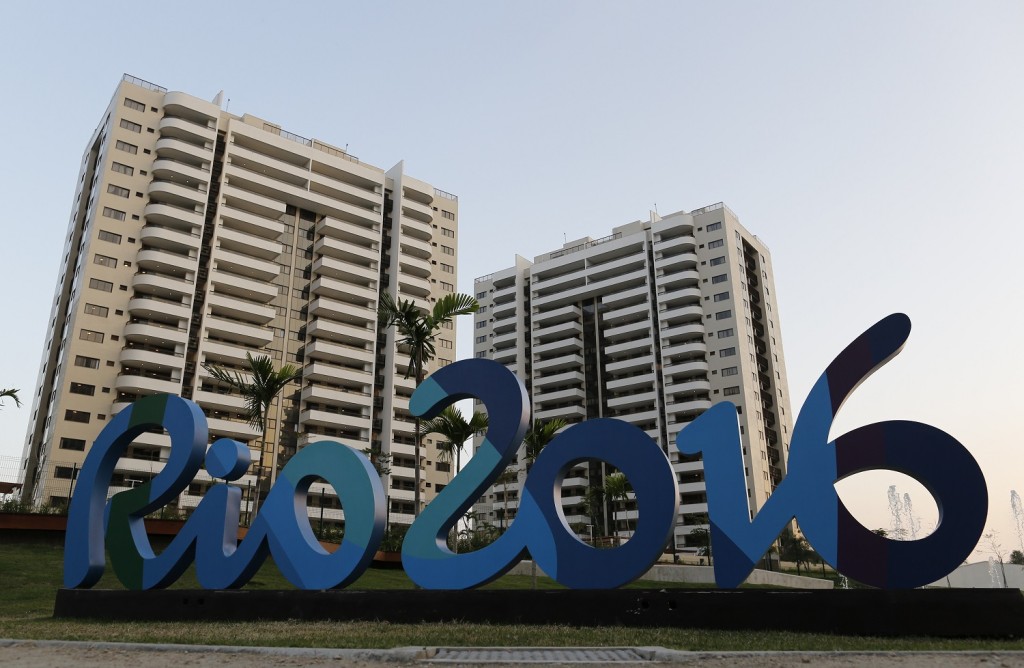WASHINGTON — A sellout crowd of 78,000 Brazilians erupted on Saturday as their singular star, Neymar, tucked home the game-winning penalty kick in the men’s soccer gold-medal match in the Rio Olympics. It was a cathartic moment of euphoria for the country’s first-ever gold medal in its most beloved sport and revenge against Germany for the humiliating defeat in the World Cup two years prior, and, watching it, you could be forgiven for thinking the 2016 Summer Olympics were a rousing success.
But now that every world record has been set, every victory celebrated, every anthem played and every tear shed for the lifetimes of hard work culminating in triumph on the world stage, it’s time to face the larger truth about the Olympics: They are redeeming for the athletic competition only. The so-called Olympic mission is long dead, and its system is in desperate need of reform. Ironically, with all of its health crises, environmental safety problems, social upheaval and crime concerns, we may have Rio de Janeiro to thank for finally putting the Olympic hypocrisy on display for the whole world to see.
The International Olympic Committee charter explicitly states in points 4, 8, 13 and 14 that the mission and role of the IOC include:
- To cooperate with the competent public or private organisations and authorities in the endeavor to place sport at the service of humanity and thereby to promote peace;
- To protect clean athletes and the integrity of sport, by leading the fight against doping, and by taking action against all forms of manipulation of competitions and related corruption;
- To encourage and support a responsible concern for environmental issues, and
- To promote a positive legacy from the Olympic Games to the host cities and host countries
The 2016 Rio Games have been an abject failure in each of these ways. To anyone who has been paying attention to what the Olympics have become, this shouldn’t have come as a surprise.
Before we even get to those four issues, the topic of empty arenas must be addressed. Despite NBC’s best efforts, there were clear visual shots of venues filled halfway or less, particularly for more niche sports but even for the main track and field draws. If the venues can’t even be filled for this one time they are on the world stage, what hope is there for the future?
Remember that baseball and softball have been added back for the 2020 Summer Games in Tokyo even as the Athens fields lie in ruins, the outfield grass reduced to dirt, lined with sterile, white tents housing refugees.
It’s true that Japan is a baseball hotbed, certainly more than Greece. But as much as Brazil is for soccer? How exactly did that work out for the Arena da Amazonia in Manaus, constructed for the World Cup (where just four matches were played) at a cost of $270 million, and where a few Olympic contests were held?
Someday soccer will catch on in Brazil pic.twitter.com/BiPowA7G4Y
— Timothy Burke (@bubbaprog) August 9, 2016
So it should come as no surprise that events that may have played well on television in the United States proved to be lackluster draws as well, even with ticket prices substantially lower than they were in London.
Women’s team gymnastics about to start. Arena is half full for what usually is one of hottest tickets in the Games. — Mark Zeigler (@sdutzeigler) August 9, 2016
“We won’t know until the numbers come in, although those aren’t always entirely reliable,” said ESPN the Magazine’s Mina Kimes, who was in Rio for two weeks before and during the games, and spoke to WTOP upon her return. “They could say X amount of tickets were sold, but sometimes those people don’t actually show up.”
Kimes was struck not only by the overall lackluster attendance, but also the absence of American fans in particular.
“You’ve seen a lot of pictures of the empty stands, which were quite dramatic, I thought,” said Kimes, referencing many of the television shots that were unable to avoid the glaring lack of spectators.
Even though Team USA athletes were generally well-received (with the notable exception of Hope Solo), it wasn’t because of a heavy American presence in the stands.
“You’d hear ‘USA’ cheers, then realize as you got close that they weren’t coming from Americans,” said Kimes.
A likely suspect in the low attendance is the litany of problems facing Rio leading into the Olympics, many of which remained huge question marks right up to the start of the competition.

At the service of humanity, promoting peace
“Rio, unfortunately, wins the gold medal in terms of troubles and problems leading into the games,” said USA Today sports columnist Christine Brennan, who dropped by WTOP before embarking to Rio for her 17th Olympic Games. “It does seem that they have a laundry list that is longer than any I have seen of the Olympics that I’ve covered.”
In addition to Rio’s notoriety as a crime-ridden city, the threat of Zika loomed in a way that no other health crisis had for spectators. The litany of concerns could have certainly put a damper on those considering international travel to watch the games. But that all goes to suggest that the Olympics naturally bring a huge tourism boom, something that has been flatly disproved.
The Ryan Lochte saga seemed ready to confirm everyone’s worst fears about Rio’s crime, until it served instead to confirm the world’s worst stereotypes about Americans. But while that tale was being dismantled, an Australian swimmer was being robbed on Copacabana beach. That’s where Lochte’s story, especially to the extent that it has been dismissed, overshadows the persistent problems that the Olympics haven’t actually done anything to fix.
“There was a lot of petty crime,” said Kimes. “I heard about a lot of incidents, including some journalists, of petty theft.”
There was also stray gunfire, a security official killed and a bus full of journalists attacked. That things weren’t worse was fortunate for the games and for Rio’s image to the world, but that doesn’t mean they’ve actually been fixed.
Likewise, the fear of a global pandemic may have been overblown, but when the temperatures rise in Rio once again for the summer, the Zika threat will remain very real, long after the athletes and tourists have gone home.
“I think it was sensationalized, perhaps vis-à-vis the people visiting Brazil for two weeks,” Kimes said of the media warnings heading into the games. “But to say it’s sensationalized undermines the fact that it does affect the people who live there and will continue to affect them long after the Olympics are gone.”

The integrity of sport
Doping allegations have been a part of Olympic lore for generations, going back to the stripping of Canadian Ben Johnson of his 100-meter dash title in the 1980s and the East German swimming scandal a decade prior. But the reports of the doping scandal out of Russia that began to break heading into the 2016 Games may have been unprecedented in size and scope.
“This would be like the CIA working with Lance Armstrong, working with Marion Jones and the others,” said Brennan, who has written extensively about the scandal.
Despite the systemic nature of the program, the IOC refused to institute a countrywide ban, allowing a number of athletes with past positive tests to compete. Brennan thinks there was something of a “too big to fail” attitude taken.
“Russia’s a superpower in sports, and obviously in the world, too,” she said.
The scandal came to a head within the competition in the pool, when American swimmer Lilly King did not mince words about what she thought of Russian rival Yulia Efimova.
“You’re shaking your finger ‘number one’ and you’ve been caught drug cheating?” King said after Efimova’s qualifying heat. “I’m not a fan.”
It made for great television, stoking those old Cold War flames. But it glossed over the fact that the Russians were allowed to compete at all, in the face of state-sponsored cheating. So why weren’t the Russians flat-out banned?
As Brennan pointed out, Russian President Vladimir Putin was the first to call current IOC President Thomas Bach to congratulate him on being elected back in 2013. He also spent a staggering $51 billion on the Sochi games, more than the cost of every other prior Winter Olympics combined.
“There was no way on earth that they were going to kick their pal, Vladimir Putin, out of the games,” said Brennan.
Worse, in an unbelievable-if-it-weren’t-on-video news conference Saturday, Bach casually declared that the whistleblower who brought the scandal to light was owed no protection from the IOC for actions that may have exposed her to grave danger.
IOC President Thomas Bach on Russian doping whistle blower: “We are not responsible for dangers to which Mrs Stepanova may be exposed”
— Rob Harris (@RobHarris) August 20, 2016

A responsible concern for environmental issues
The Associated Press’s in-depth investigation opened the world’s eyes to just how bad the water pollution problem was for the athletes competing in open water events in Guanabara Bay.
That led to more awareness of the root of the issue: the open, sewage runoff coming from the city, straight into the bay. Untreated and flowing freely, raw sewage flows in streams and rivers, out in the open, posing constant health risks. As part of the efforts to clean up Guanabara Bay, Brazil promised to modernize its sewer systems. But the country diverted money away from such problems to ensure all of the athletic venues were finished in time for the opening ceremonies.
The concern for athletes competing in the open water will be gone with the games, as will the need for the arenas. But the water issue will persist for the permanent residents, from those living in the favelas to those swimming in the contaminated waters off Copacabana beach. It’s hard to imagine, after spending better than $14 billion for the Olympics amid a recession, where any money would be set aside to fix the issue now, with the international spotlight no longer shining.
In the lead-up to the games, HBO’s Real Sports devoted an entire 80-minute episode to the systemic corruption of the IOC and the destruction the past several Olympic processes have wrought on Athens, Beijing, Sochi, and now Rio. It is deeply researched, superbly reported and must-see television for anyone with a passing interest in the Olympics. You should really go watch the whole thing.
One of the show’s four correspondents, Jon Frankel, was tasked with visiting Rio. He was there in June, a couple months ahead of the games, where he visited one of the city’s roughly 600 favelas, many of which deal with such conditions.
EP 232: Rio Trailer 1
“If not now, then when?” said Frankel in a phone conversation with WTOP earlier this month. “If you can’t get it done for the world stage, when everybody’s looking in on you, when you have a chance to show off your country to the rest of the world, when you’ve made a promise to get it done and you didn’t, then what hopes do you have, especially when your country is really strapped for cash now?”

A positive legacy for the host city and country
The favela of Vila Autodromo has become the focal point for the lion’s share of news stories about the displacement of communities in Rio. The government offered some money to residents to relocate, but reportedly far less than the value of the homes. Some took the money; others refused to move. But those in Vila Autodromo represent just a fraction of the estimated 80,000 residents — more than the entire population of Silver Spring — forced to relocate due to Olympic construction.
At least in Sochi, the Olympic housing — as shoddy and poorly maintained as it has been — now serves as a replacement home for some of the residents displaced by Olympic construction. No such luck in Rio.
“The 31 buildings that were built for the Olympic Athletes’ Village, those apparently are so lavish, and the way the deal was made with the local developer, he will then have the right to use them and sell them or rent them to high-end clientele,” said Frankel.
Despite Bach’s hilarious claim that “there is no public money in the organization of these Olympic Games,” the resources devoted away from large scale potential fixes were instead prioritized for the games, at the cost of everything and everyone else. This year, even the Paralympic Games are at risk, after money set aside for them was diverted at the last moment to cover budget shortfalls.
Mind you, Bach and other IOC members are still getting paid their $900 per diems (not to mention his better than $250,000 annual stipend for a “volunteer position”) and enjoying tax-exempt status, while single-handedly deciding what share of the profits to keep, and what to share back with the host nation. Under that system, the IOC has made better than $1 billion per year, while places such as Athens, London and Sochi have been left reeling from budget shortfalls.
“Now the Olympics come with a warning label which says: Buyer beware,” said Frankel. “It is the reason, I believe, that Oslo pulled out; it’s the reason Boston pulled out; it’s the reason that some people in Chicago feel like they dodged a bullet when they were not awarded the games.”
And, likewise, D.C. But the fact that Norway — a country as well positioned as any in the world to host the games, with good natural conditions and financial stability — shunned them should serve as a major wake-up call.
“I think that the IOC could be at a crossroads here, when they have enough people who say, ‘I’m not lining up anymore,’” said Frankel. “And the only countries you’re going to have are the Kazakhstans or China — which doesn’t seem to take into consideration how its people are treated so often — then that’s what you’re left with. And if that’s what the IOC chooses to do because those people are willing to bid, and line their pockets, then that’s what they’ll do.”
Brennan is perhaps less optimistic.
“It is a conversation the International Olympic Committee should be having. I don’t think it is having that, because they just want more people to be groveling to host the games, as opposed to having a very intelligent conversation about the future of the games,” she said.
The most obvious solution, one that many others have called for, is to have permanent Olympic sites, either one each for the Summer and Winter Games, or a small rotation of cities. The prime candidates are those that already have Olympic infrastructure built — Athens, London, Los Angeles and/or Sydney for summer locations — where the IOC could use the profits from the games to help maintain and update facilities as needed.
“I think that’s gonna be what they have to wrestle with,” said Frankel. “It seems to me that when they stop looking for different locations to host the games, and you take away the ‘bidding process,’ there’s something lost for the members of the IOC. There’s ‘lost opportunity,’ how about we put it that way.”
Brennan, Frankel and Kimes are all in agreement that a permanent rotation makes financial sense for the host cities to avoid the massive cost run-ups of the past few games.
“That seems like an obviously preferable outcome,” said Kimes. “They’d be much less likely to lose the extraordinary amounts of money they do lose from hosting the games.”
And it wouldn’t diminish the Olympic experience for the athletes themselves.
“Look, nobody seems to have a problem going back to Augusta every year to play that golf tournament,” Frankel said of The Masters. “And if you look at most athletes, 90 percent of them only participate in one Olympics.”
Brennan’s only fear is potentially not including enough of the rest of the world in the process.
“The negative about that is, would you ever get to Africa? Would you get back to South America? Would you get to other places on the globe you’d say you’d like to go to?” she said.
Her suggestion? Something of a hybrid system, mixing in a wild-card bidder every fourth or fifth rotation. But even on a more sparing basis, without reform, such games would face the same socioeconomic issues as we’ve seen in Rio.
“If they can’t do it — the infrastructure issues, and the money that has to be spent — then why would we give them that burden?” said Brennan.
That’s just what the games have become — a burden. They are a financial albatross, bringing hardship, rather than opportunity, to the masses.
“I think they see themselves, as Thomas Bach said, as transforming a city,” Frankel said. “And they gave Rio that opportunity to have a look before the games and different look after the games.”
Rio is transformed, but not in a way that helps the 80,000 who have lost their homes, or the hundreds of thousands of others still living with raw sewage flowing past their walls.
“Unfortunately, it doesn’t turn out that way,” said Frankel. “And you can go talk to other people in other countries, as we did, whether it’s Beijing, whether it’s Sochi — go back to Athens — and you can see that the legacy isn’t what the IOC promises.”
In Beijing and Sochi, though, any negative reports were quashed by the government. In Russia, as Real Sports reported, journalists were warned by police not to report anything negative about the games, and were even arrested if they did. In China, some 200-odd human rights lawyers and activists were rounded up and imprisoned last year, shortly before the IOC awarded the 2022 Winter Games to Beijing. In Brazil, there was no such state-sponsored censorship to keep the bad press away — only the IOC itself trying to whitewash the litany of issues in its press conferences.
But then, of course, the Olympics aren’t about a lasting legacy at all. They’re about putting on a good show for the world for two-and-a-half weeks, then getting out of Dodge before real life once again takes hold. The extra 85,000 police dispatched for the games won’t remain. The minor crimes, such as the one Lochte and the American swimmers were involved in, will no longer be investigated, just like they haven’t been for years.
All that will remain is the empty stadiums, a country still in recession, water still polluted, crime still rampant — a living, breathing warning to the other cities of the world not to buy into the Olympic lie.







